Smart Solutions for Smart Homes: Maximizing Your Savings with Our HTA Budget Calculator
Smart Savings for Smart Homes: Optimize Your Budget with Our HTA Calculator
Interested in smart home upgrades that won’t break the bank? “Smart solutions for smart homes: maximizing your savings with our HTA Budget Calculator” is your essential tool for financial clarity. It estimates the costs of smart technologies tailored to your space and outlines potential savings, helping you make knowledge-based investments. This article guides you through practical choices, ensuring a seamless and economically sound transition to a smarter home.
Key Takeaways
-
The HTA Budget Calculator is a vital tool for homeowners and installers, offering personalized cost estimates for smart home technology investments, taking into account factors like square footage and local living costs, while also considering long-term savings.
-
Smart home technologies including lighting control systems, climate control, and advanced security cameras are key for energy savings, enhancing home efficiency, reducing energy consumption, and providing personalized automated control.
-
Ensuring a solid network infrastructure with enterprise-grade Wi-Fi solutions is crucial for a reliable, scalable, and secure smart home environment, while selecting the right technology professionals. Those with HTA Certification, maintain a gold standard of excellence for high-quality installation and system performance.
Maximizing Savings with the HTA Budget Calculator
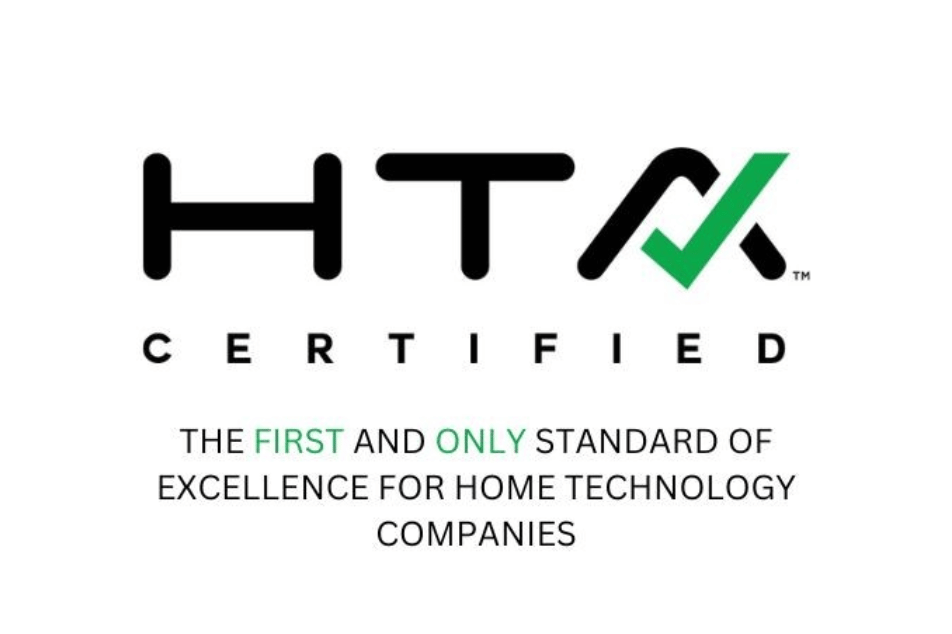
The HTA Budget Calculator is your first step towards a successful smart home technology investment. The HTA Budget Calculator takes into account your home’s square footage and personal budget range to provide a detailed breakdown of costs, thereby allowing for effective resource allocation. This tool is not only handy for homeowners but also for professionals such as general contractors, architects and designers, as it estimates the overall budget for smart home technologies.
Moreover, the HTA Budget Calculator helps to evaluate and compare potential savings from various technologies, guiding your financial planning for smart home upgrades. It provides cost estimates not only for the equipment but also for installation, ensuring no unexpected expenses arise. The calculator aids in making informed decisions about where to allocate funds by taking into account both immediate costs and long-term savings potential.
How the HTA Budget Calculator Works
To determine your expected expenses for home technology projects, the HTA Budget Calculator employs an intelligent questionnaire. This detailed inquiry asks about your home’s square footage and the cost of living or labor costs in your area, enabling a personalized budget range. Completing this questionnaire is a swift process, typically taking less than 5 minutes, allowing you to quickly obtain budget estimates and start planning your smart home project.
With these inputs, the calculator delivers a calculated price that includes labor and other costs, providing you with a realistic budget range. This allows for effective investment planning and ensures your dream smart home project aligns with your financial capabilities.
Benefits of Using the HTA Budget Calculator
The HTA Budget Calculator offers numerous benefits, including:
-
Providing a realistic budget range for various home technology options
-
Offering a comprehensive overview of potential costs
-
Helping users understand what to expect financially when planning their smart home projects.
By utilizing this calculator, homeowners gain a tool that facilitates effective financial planning for home technology projects, as it assists you in harmonizing your smart home ambitions with your budget, facilitating a smooth and financially viable home upgrade process.
Essential Smart Home Technologies for Energy Savings

Now that we’ve covered budgeting, let’s turn to the actual smart home technologies that can lead to significant energy savings. At the heart of an energy-efficient smart home lies the integration of various technologies. These are designed to offer automated and customized control over home systems, resulting in substantial energy savings. One such example is the integration of smart bulbs into a home’s technology systems, which are 75% more efficient than incandescent bulbs, last 25 times longer, and come with dimming features for additional savings.
From lighting control systems to advanced security cameras, the range of smart home technologies designed to save energy is vast. Each technology offers unique advantages, and the right combination can lead to substantial energy savings and an enhanced living experience. We will delve deeper into these technologies and their benefits.
Lighting Control System
Smart lighting control systems are a cornerstone of energy-efficient homes. They enhance energy efficiency by enabling automated scheduling, dimming capabilities, and remote light management, leading to a significant reduction in unnecessary energy consumption.
To add to the energy savings, these systems can incorporate motion sensors and adjust lights based on location or pre-set schedules. This guarantees that lights are only active when necessary, which adds convenience and contributes to additional energy savings.
Climate Control
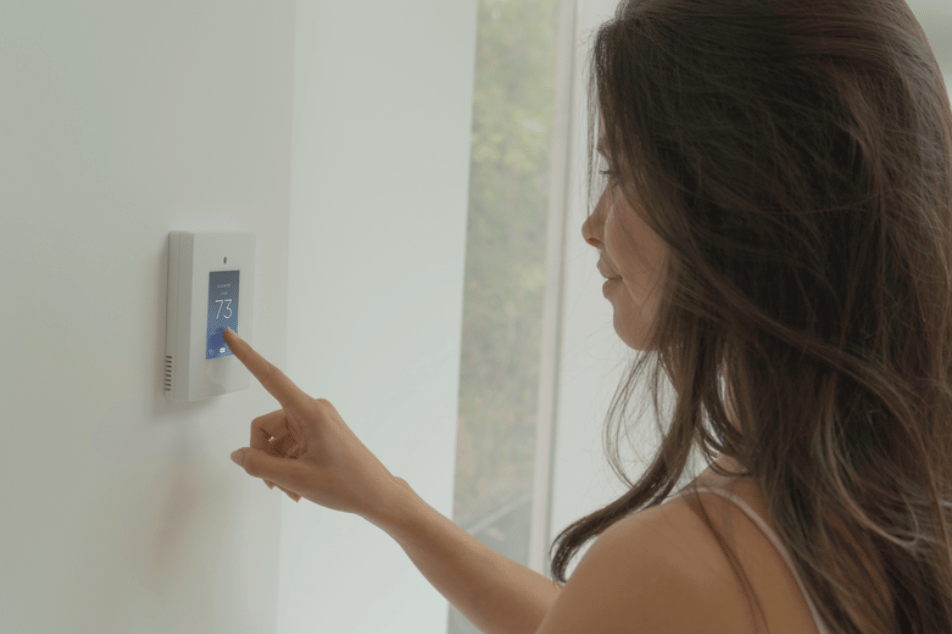
In addition to lighting, climate control is another area where smart home technologies can greatly contribute to energy savings. Smart air conditioning controllers, for instance, can help save up to 25% on energy costs per year by optimizing air conditioner usage. Moreover, programmable thermostats can lead to at least 10% annual savings on heating and cooling costs compared to traditional non-programmable thermostats.
Advanced smart climate control systems offer the following benefits:
-
Real-time data-based heating and cooling adjustments
-
Humidity and temperature sensing for enhanced energy efficiency and comfort
-
Tailoring heating and cooling to homeowners’ habits and presence for substantial energy savings
Security Cameras with Better Night Vision
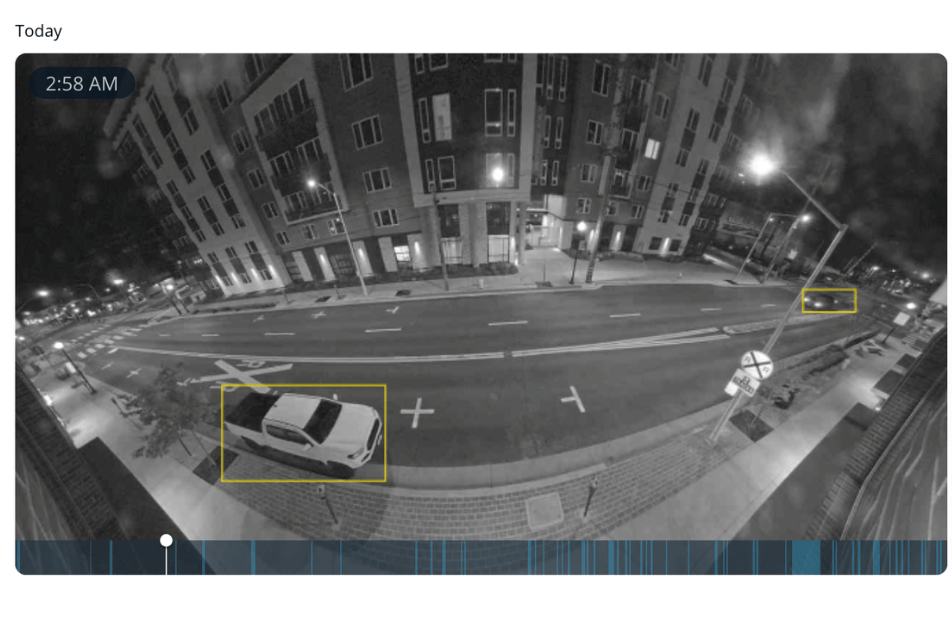
Security is another area where smart technology shines. Advanced security cameras with better night vision not only provide improved surveillance but also contribute to energy savings. One might wonder how many security cameras are needed to maintain optimal coverage. Incorporated features in these cameras decrease energy consumption while maintaining surveillance quality.
For instance, these advanced cameras are capable of recording for extended surveillance periods, reducing the need for constant power consumption. All the while, they still provide high-resolution images that are crucial for detailed surveillance. Thus, homeowners can enjoy enhanced security and energy savings simultaneously.
Investing in High-Quality Sound and Entertainment Systems
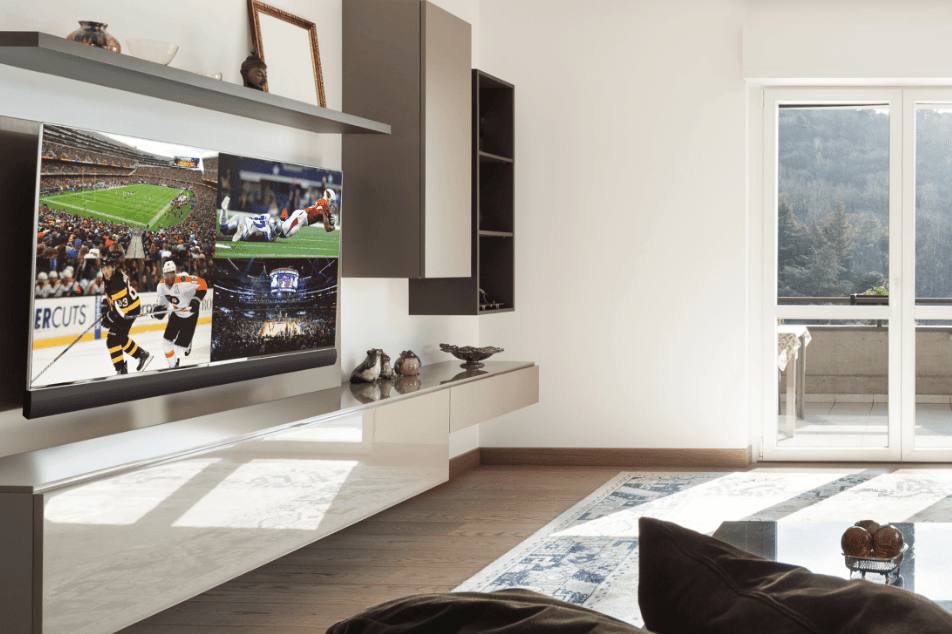
While energy efficiency is vital, smart homes are also about enhancing the living experience. High-quality sound and entertainment systems play a significant role here. These systems can significantly enhance the enjoyment and overall experience in a smart home, providing an immersive environment for:
-
Music
-
Movies
-
Gaming
-
Virtual reality experiences
Moreover, a higher quality sound system, such as a reference quality sound system or a high-quality surround sound system, can potentially increase the value of a home. Modern homebuyers often look for sophisticated technology integration, and an impressive sound system can be a compelling selling point.
Surround Sound System
A surround sound system can transform your smart home into a cinematic paradise. It provides an immersive audio experience that significantly enhances the enjoyment of movies, music, and games. The soundscapes created by surround sound systems can be tailored to establish a specific ambiance or atmosphere in a room, contributing to the immersive experience of a smart home environment.
Furthermore, a surround sound system:
-
Creates a 360-degree audio environment
-
Makes the listener feel like they are in the middle of the action
-
Enhances engagement with the content being played
-
Adds an extra layer of excitement to social gatherings
Dedicated Home Theater Room

For a truly immersive experience, consider investing in a dedicated home theater room. Equipped with specialized equipment such as a high-quality video projector, a motorized projection screen, and a theater quality sound system, a home theater room offers an authentic cinema experience. High-quality visuals and audio make the in-home experience comparable to that of commercial cinemas, all from the comfort of your own home.
Moreover, a home theater room can contribute to the resale value of a home. So, while you enjoy your favorite movies in high definition, you’re also making a smart investment for future financial returns.
Distributed Video Systems
Distributed video systems add another layer of convenience to your smart home. These systems enable the sharing and streaming of video content across multiple screens throughout the home. This means you can start watching a movie in the living room, pause it, and continue watching from the same point in your bedroom.
In addition to convenience, distributed video systems offer the following benefits:
-
Reduce the need for multiple content subscriptions and devices
-
Maintain a sleeker home design
-
Less clutter
-
Enjoy your favorite content wherever you want
Ensuring a Robust and Secure Network Infrastructure
A robust and secure network infrastructure is the backbone of any smart home. The increasing number of devices connected to a home network requires consistent performance and higher bandwidth. Designed for scalability and adaptability to technology advancements, a professionally installed smart home system allows for future updates and expansions.
To maintain optimal function, network performance is supported by remote management tools from providers such as Araknis Networks and Access Networks. And to protect smart homes from cyber threats, strong network security, including firewalls and VPN support, is crucial. This is why experts recommend enterprise-grade solutions for enhanced security, speed, and reliability.
Enterprise-Grade Wi-Fi System
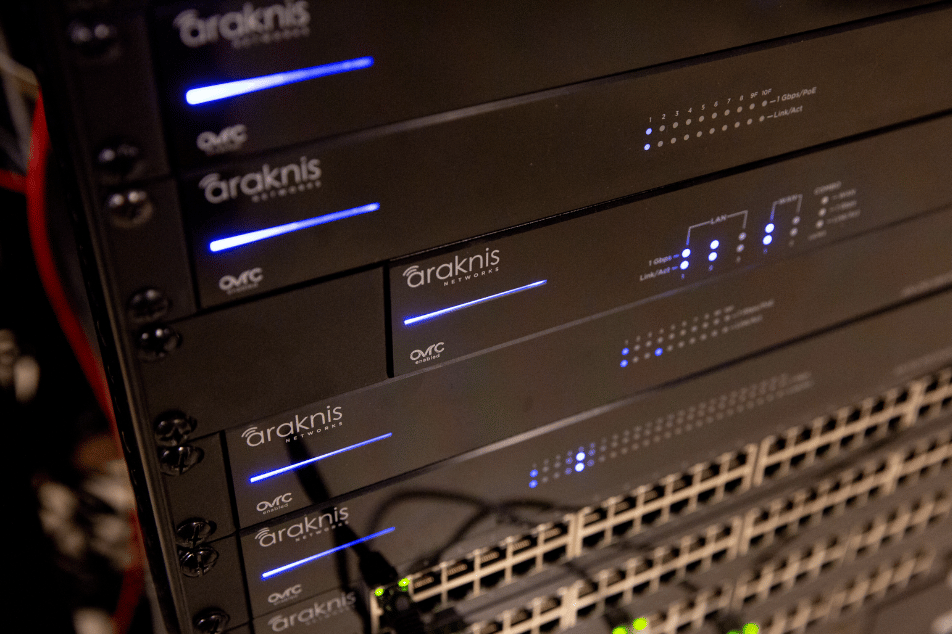
An enterprise-grade Wi-Fi system is a worthwhile investment for any smart home. These systems are designed to last, with a durability range of 10 to 30 years without experiencing failure. They also offer the ability to scale and upgrade easily, significantly reducing system downtime that might otherwise be required for enhancements.
Furthermore, enterprise-grade Wi-Fi systems come with:
-
Remote monitoring and management software
-
Precision and timely troubleshooting
-
Reduced likelihood of recurring issues
-
Enhanced user privacy
Addressing Privacy Concerns
In a world where data is the new gold, privacy is a major concern for many homeowners. Enterprise-grade networking components inherently provide a higher level of security, which is essential for the protection of smart homes. The enhanced security features of these networking components act as a strong shield against breaches, a critical concern for homeowners.
Professional integrators who demonstrate solid customer service recommend the following enterprise-grade solutions to ensure network stability and safeguard personal information within smart home environments:
-
Quality networking equipment
-
Secure routers and firewalls
-
Network segmentation
-
Strong encryption protocols
-
Regular software updates and patches
The combination of professional integration and quality networking greatly reduces the privacy risks normally associated with smart home technologies.
Choosing the Right Technology Professionals
Choosing the right technology professionals can make or break your smart home project. A professionally installed smart home system can:
-
Handle complex tasks
-
Offer flexibility that DIY systems often lack
-
Be built with scalability in mind, capable of adapting to technology advancements and accommodating future updates and expansions.
Moreover, high-quality smart home systems feature user interfaces that are intuitive and can often be customized. This ensures users have a comfortable daily interaction with the technology, enhancing the overall user experience.
Home Technology Association (HTA) Certification
Consider the Home Technology Association (HTA) Certification as a mark of excellence when selecting a technology professional. This rigorous program sets high standards in the smart home technology industry, with less than 10% of companies meeting these standards.
HTA Certified professionals can offer:
-
Higher quality products with better warranties and services
-
Increased customer trust
-
Enhanced reputation and credibility in smart home technology integration
The Home Technology Association also provides a locator tool for home’s technology systems, emphasizing the importance of professional installation for reliability and capability.
Asking the Right Questions
It is crucial to ask the right questions when selecting a smart home installer. Here are some important questions to consider:
-
What is your specific experience with smart home technology systems?
-
Are you an employee or a subcontractor?
-
What liability and worker’s compensation responsibilities do you have?
Asking these questions will help ensure that you choose a smart home installer with the necessary knowledge and skills for your project and clarify any liability and worker’s compensation concerns.
Other key questions include whether the installer can integrate with current technology and what their pricing structure is, including hourly rates and handling of overages. These inquiries help assess compatibility and future upgrade needs, as well as manage your budget and avoid unexpected costs. Always remember to ask for references from past clients. These can provide valuable insights into an installation company’s reliability and quality of service.
Summary
In conclusion, a smart home offers a blend of comfort, convenience, and energy efficiency. By using tools like the HTA Budget Calculator, you can plan your investment wisely, maximizing your savings while enjoying the benefits of various smart home technologies. From lighting control systems and climate control solutions to high-quality sound and entertainment systems, all these technologies contribute to an enhanced living experience. The importance of a robust and secure network infrastructure cannot be overstated, and choosing the right technology professionals is crucial for a successful smart home project.
Frequently Asked Questions
What is the HTA Budget Calculator?
The HTA Budget Calculator helps you plan your smart home technology investment by providing a personalized budget range and estimating potential savings.
How does a smart lighting control system save energy?
A smart lighting control system saves energy through automated scheduling, dimming capabilities, and remote light management, which reduces unnecessary energy consumption.
How can a surround sound system enhance my smart home experience?
A surround sound system can enhance your smart home experience by providing an immersive audio experience for movies, music, and games, as well as creating specific room ambiances.
What is the role of network infrastructure in a smart home?
A robust and secure network infrastructure is essential for a smart home, ensuring consistent performance and higher bandwidth for the increasing number of devices connected to the home network.
What does HTA Certification signify in a technology professional?
HTA Certification signifies excellence in the smart home technology industry, demonstrating that the professional meets high standards set by the Home Technology Association.
Categories
- Audio-Video
- Home Theater Installation
- Smart Security Systems
- Wi-Fi & Networking Systems
- Control4 Systems
- Savant Control Systems
- Nice Home Management - Elan Control Systems
- Motorized Window Treatments
- Dimmer Switches
- Outdoor Entertainment
- Professional Installation
- Smart Home Automation
- Smart Lighting Systems
- Surround Sound Systems





